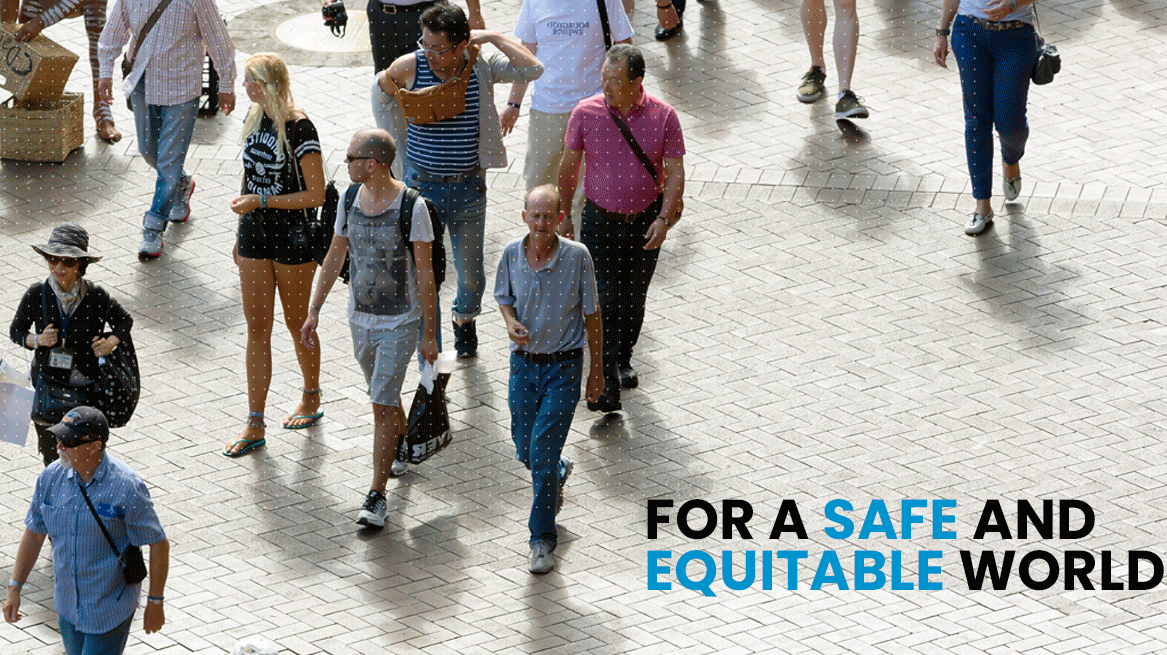Resilient Cities Network (R-Cities)
Resilient Cities Network is the world’s leading urban resilience network. We are committed to bring together global knowledge, practice, partnerships, and funding to empower our members to build safe and equitable cities for all.
Description
Resilient Cities Network is a global city-led nonprofit organization that brings together knowledge, practice, partnerships, and funding to empower our member cities. Arm in arm with those cities, we help them build a safer, more equitable, and sustainable future for all their residents.
City resilience is about making a city better, in both good times and bad, for the benefit of all its citizens, particularly the poor and vulnerable. We define resilience as the capacity of individuals, communities, institutions, businesses, and systems within a city to survive, adapt, and grow no matter what kinds of chronic stresses and acute shocks they experience.
We co-create urban solutions to address complex and interrelated urban challenges, so that cities and communities thrive. Imbedded in our guiding holistic resilience approach, we are focused on three cross-cutting themes and two thematic deep dives to orient program delivery. The cross-cutting themes are resilient recovery (health), equity, and economic opportunity. The two thematic pillars are climate resilience and circularity.
Did the Sendai Framework change or contribute to changes in your activities/organization? If so, how?
The Sendai Framework for Disaster Risk Reduction 2015-2030 provides a global plan for reducing disaster losses and build resilient societies. Our work is aligned with Sendai Framework’s message on the role of effective global and regional networks to promote a culture of disaster prevention, resilience and responsible citizenship, generate understanding of disaster risk, support mutual learning and share experiences; and encourage public and private stakeholders to actively engage in such initiatives.
What led you to make this commitment/initiative?
What was your position before making this Voluntary Commitment / prior to the Sendai Framework?
Our motivation is to support our members in the building of safe and equitable cities for all. The Sendai Framework calls for relevant bodies of local governments to continue supporting cooperation and mutual learning among local governments for disaster risk reduction and the implementation of the Framework.
Our vision is a global urban resilience coalition: an empowered network of cities combining their efforts to deliver urban resilience through knowledge sharing, collaboration, and collective action. Through this network, we hope to improve the lives of over 220 million city dwellers.
Deliverables and Progress report
Deliverables
Deliverables are the end-products of the initiative/commitment, which can include issuance of publications or knowledge products, outcomes of workshops, training programs, videos, links, photographs, etc.
Our programs build capacity and scale resilience and investments in vulnerable communities and the critical systems that serve them. Programs are thematic action-oriented initiatives that are implemented to build capacity through peer-to-peer learning and the application of resilience tools and practices, and to support the design and implementation of urban resilience projects.
The City Resilience Strategy is one of the core tools of Resilient Cities Network. The strategy is the result of a participatory process to identify the main resilience challenges in a city. It is generally organized as follows: city resilience vision, resilience pillars, resilience goals for each pillar, concrete projects, and initiatives for each pillar. Resilience Strategies are more than a milestone – they are a roadmap, a call to action.
We support member cities across the world to design and implement a resilience strategy.
The Resilient Cities Network consists of cities committed to building and investing in urban resilience, located in five geographical regions: Africa, Asia Pacific, Europe, and the Middle East, Latin America and the Caribbean, and North America.
One of Resilient Cities Network’s key innovations is creating a new type of urban resilience champion. The Chief Resilience Officer (CRO) is a top-level advisor who reports to the city leadership responsible for leading, coordinating, and developing their city’s resilience strategies, plans, and actions.
We are city-led network represented by these diverse and dynamic leaders, who are the vanguard of resilience practice and are driving change in some of the world’s most complex and fast-changing cities.
Organizations and focal points
Implementing Organization(s)
Focal points
Partners
- Alliance to End Plastic Waste
- Secretaría de Desarrollo Agrario, Territorial y Urbano
- Visa Inc.
- The Circulate Initiative
- Ocean Conservancy
- Singapore Economic Development Board
- Atlantic Council
- Temasek Foundation CLG Limited
- Fundación Avina
- Ministerio del Interior Argentina
- Global Commission on Adaptation
- The Resilience Shift
- Nanyang Technological University
- Mercociudades
- National Institute of Urban Affairs
- University of Manchester
- Centre for Liveable Cities
- Rockefeller Foundation, the
- Nature Conservancy, the
- Arup International Development
- Netherlands - government
- Citi Foundation, Citigroup
- United Nations Office for Disaster Risk Reduction (UNDRR)
- Inter-American Development Bank (IDB)
- Deutsche Gesellschaft für Internationale Zusammenarbeit
- World Resources Institute
- ICLEI - Local Governments for Sustainability
- Andean Development Corporation
- World Bank, the
